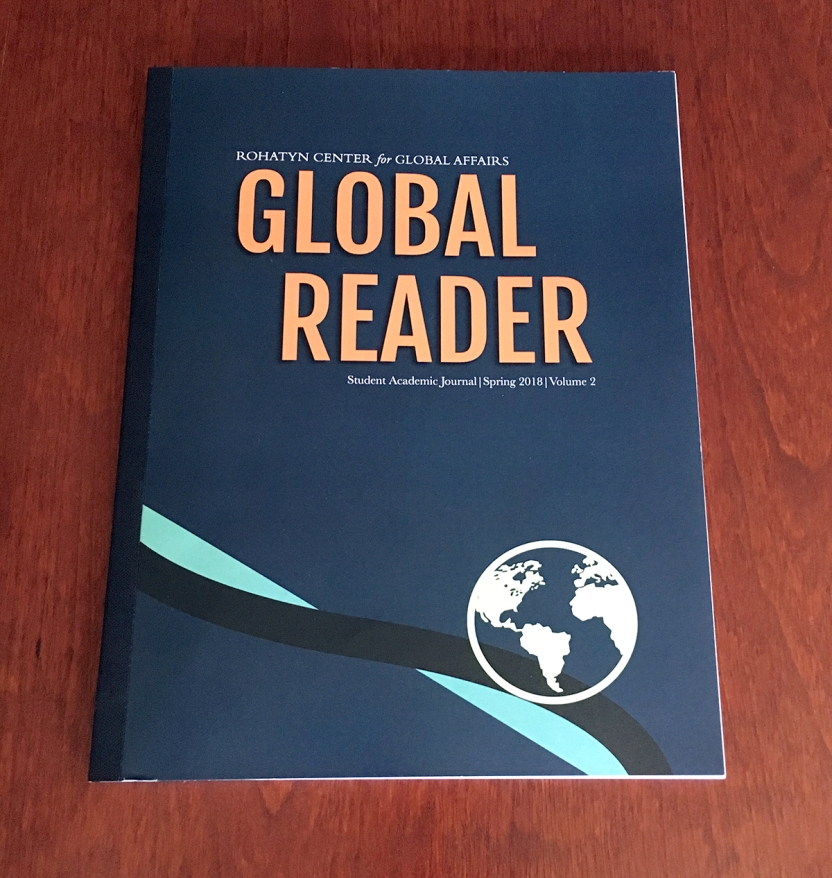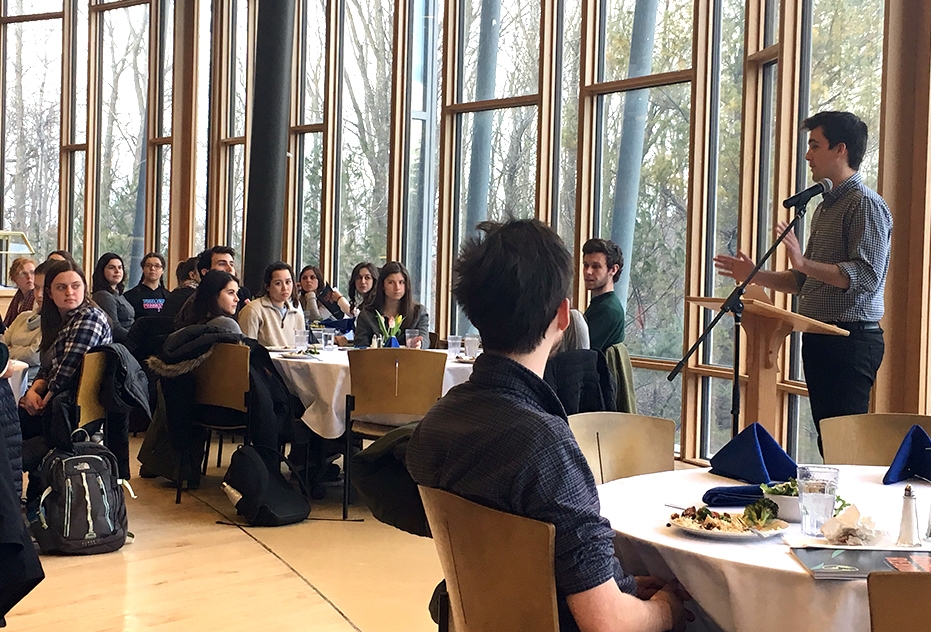Student Research Journal Celebrates 2018 Edition

MIDDLEBURY, Vt. – Students engaging with major global challenges was the focus of a special event at Atwater Dining Hall on Tuesday evening when the Rohatyn Center for Global Affairs released the 2018 issue of the Global Reader. Published by the Rohatyn Student Advisory Board (RSAB), the current issue features seven student contributors, who submitted papers on topics ranging from waste dumping by tech giants to the growth of women’s rights around the world.
Amelia Pollard ’20.5, one of the student authors, wrote about why technology titans such as Google, Apple, Facebook, and Amazon—important world actors and huge producers of electronic waste—have not been held more accountable.
“I became pretty obsessed with finding out why they haven’t been more adamantly pinned as the ones responsible for the dumping of physical electronic waste in developing countries,” said Pollard. Pollard’s article in the Reader is titled “Electronic Waste: Transboundary Movement and Producer Responsibility.”
“The Global Reader primarily is imagined as a platform for student works, since there is a lack of such opportunities in this format,” said Karlo Skarica, the Rohatyn Center’s program and outreach fellow, who supervised the publication. “Our students spend hours every day working very committedly on their future areas of expertise, so we wanted to shine some light on that effort. This is the second year we decided to do exactly that in the format of a student academic journal.”
Skarica said that last year the RSAB identified a need for students to have a platform to share their written work and research. The Reader invites student submissions from a wide range of disciplines, themes, and world regions.

Karlo Skarica ’17 welcomes a gathering of students to a dinner at Atwater Dining Hall on April 10 for the release of the 2018 edition of the Global Reader.
“We were looking for diverse subject matter,” said Isabella Mauceri ’20.5, one of seven student editors who reviewed submissions. “Most of the entries here were chosen not just for the quality of the writing, but also for the topic that the student author decided to delve into,” she said.
Talia Ruxin ’20 contributed the article “Women’s Rights in the Early Days of Khomeini,” which she wrote for a class on politics in the Middle East and North Africa with Assistant Professor of Political Science Sebnem Gumuscu. “I believe that in our interconnected world we have a responsibility to learn about other cultures and regions,” said Ruxin.
“The 2017 Women’s March on Washington and the sister marches across the world showed the ability of diverse women and their communities to unite to create transformative social change. Understanding how changes to women’s rights during revolutions, such as the Iranian Revolution, is an important component in creating social change today,” said Ruxin.
Pollard, who looked at waste liability among Google, Apple, Facebook, and Amazon (GAFA), said writing the article gave her a new way to focus her academic interests.
“Writing this article has pushed me to pursue issues of electronic waste internationally,” said Pollard. “I’m continuing my studies of French in the hope of eventually doing some line of work in West Africa by working to mitigate the mass dumpings of electronic waste. I’ve also taken on computer science in the hope of understanding the complexities of the tech industry. I think producer responsibility often starts from the inner workings of companies like GAFA, and I hope to equip myself in the best way possible to push the onus onto these tech giants.”
Copies of the new issue of the Global Reader are available through the Rohatyn Center for Global Affairs.

